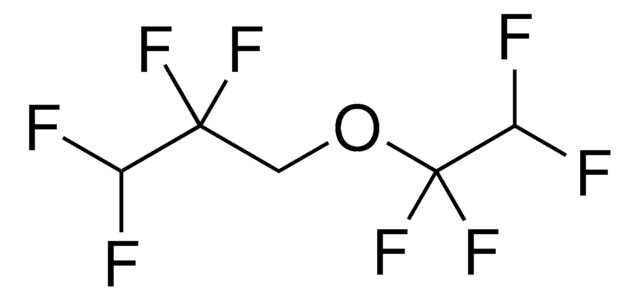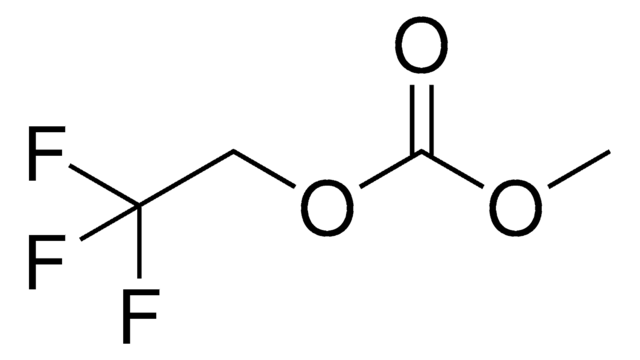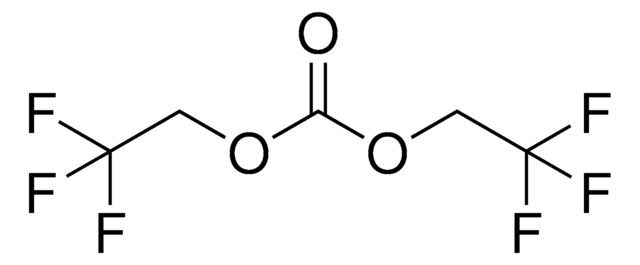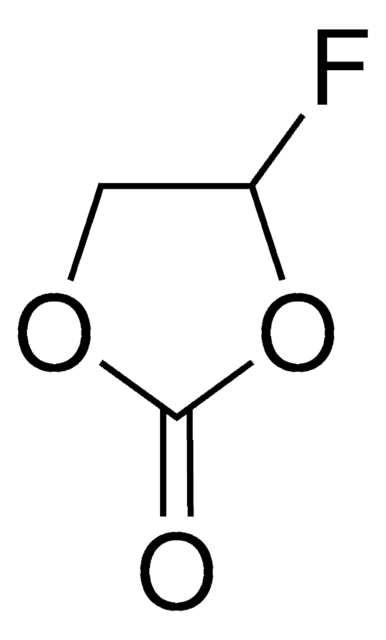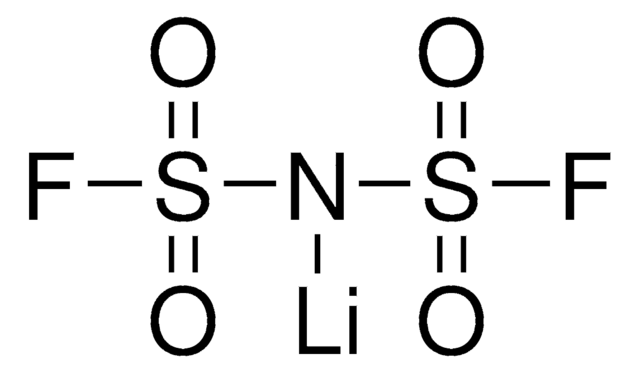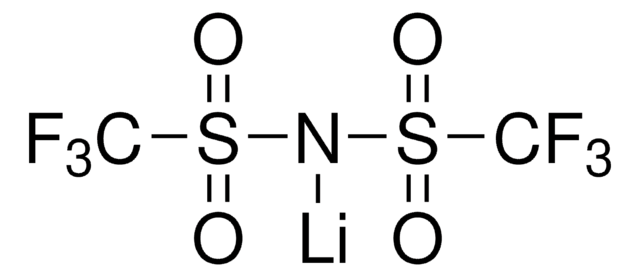933988
1,1,2,2-Tetrafluoroethyl 2,2,2-trifluoroethyl ether
≥99.5%, anhydrous, acid <=100 ppm, battery grade
Synonym(e):
1,1,2,2-tetrafluoro-1-(2,2,2-trifluoroethoxy)ethane, HFE-347, TFTFE
About This Item
Empfohlene Produkte
Qualität
battery grade
Qualitätsniveau
Assay
≥99.5%
Form
liquid
Grünere Alternativprodukt-Eigenschaften
Design for Energy Efficiency
Learn more about the Principles of Green Chemistry.
sustainability
Greener Alternative Product
Verunreinigungen
≤100 ppm acid (HF)
≤250 ppm H2O
non-volatile residue (NVR)
≤10 ppm
bp
56 °C
mp (Schmelzpunkt)
-91 °C (lit.)
Dichte
1.49 g/mL
Anwendung(en)
battery manufacturing
Grünere Alternativprodukt-Kategorie
Allgemeine Beschreibung
Anwendung
Signalwort
Warning
H-Sätze
Gefahreneinstufungen
Eye Irrit. 2 - Skin Irrit. 2
Lagerklassenschlüssel
10 - Combustible liquids
WGK
WGK 3
Flammpunkt (°F)
Not applicable
Flammpunkt (°C)
Not applicable
Analysenzertifikate (COA)
Suchen Sie nach Analysenzertifikate (COA), indem Sie die Lot-/Chargennummer des Produkts eingeben. Lot- und Chargennummern sind auf dem Produktetikett hinter den Wörtern ‘Lot’ oder ‘Batch’ (Lot oder Charge) zu finden.
Besitzen Sie dieses Produkt bereits?
In der Dokumentenbibliothek finden Sie die Dokumentation zu den Produkten, die Sie kürzlich erworben haben.
Unser Team von Wissenschaftlern verfügt über Erfahrung in allen Forschungsbereichen einschließlich Life Science, Materialwissenschaften, chemischer Synthese, Chromatographie, Analytik und vielen mehr..
Setzen Sie sich mit dem technischen Dienst in Verbindung.